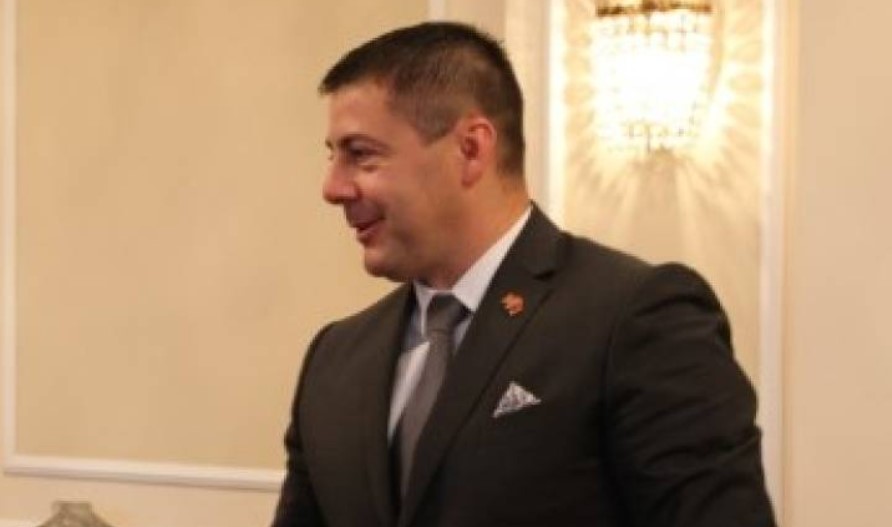Financial police have arrested Borche Markovski, a prominent construction magnate and honorary consul of Belarus, on suspicion of rigging a public tender worth about 100 million denars (€1.6 million) tied to the state-owned energy complex REK Bitola, officials and media reports said.
Markovski, owner of Markovski Kompani DOOEL, was taken into custody after the Bitola Basic Court overturned an earlier decision placing him under house arrest, citing the risk of flight due to his assets abroad. He is now being held in 30-day pretrial detention.
“The Criminal Council changed the decision of the investigative judge and ordered a 30-day detention for the suspect due to the risk of absconding,” the court said in a statement, adding that Markovski is under investigation for “abuse of procedure for public procurement” under North Macedonia’s criminal code.
A Powerful Contractor with State Links
Founded in 2002 and based in Bitola, Markovski Kompani has grown from a small civil engineering firm into one of the country’s biggest construction contractors, specializing in earthworks, road building and mining operations. According to public records, the company employs more than 300 people and reported revenues of nearly 2.8 billion denars (€45 million) in 2024.
Much of that growth came from lucrative contracts with REK Bitola, a coal and electricity producer that is part of the state energy company ESM (Elektrani na Severna Makedonija). Over the past decade, Markovski Kompani has secured multimillion-euro deals for excavation, overburden removal, and machinery maintenance at the Bitola mines.
A 2023 tender for relocating operational stations from the Oslomej mine to Bitola, valued at 106 million denars (€1.7 million), is now at the centre of the investigation. Prosecutors suspect that the bidding process was manipulated to favor Markovski’s firm, and that members of the former REK Bitola management may have colluded in the scheme.
Accusations of Cronyism
Markovski Kompani was often described by local media as a “favoured company” of the previous government led by the Social Democrats (SDSM) and the ethnic Albanian DUI party. A 2022 press conference by opposition MPs alleged that the firm was earning up to €63,000 per day for heavy machinery services — with bulldozers reportedly charged to taxpayers at over €16,000 per hour.
While such claims were dismissed by REK Bitola management at the time as politically motivated, the controversy highlighted growing concerns over state contracts being concentrated among a handful of politically connected firms.
Analysts and transparency groups say the Markovski case underscores persistent weaknesses in public procurement oversight and the close ties between business and politics in North Macedonia’s energy sector.
“This case illustrates how public resources can be diverted through rigged tendering processes under the guise of strategic infrastructure work,” said one Skopje-based anti-corruption expert who asked not to be named. “The amounts may not be large by EU standards, but they are enormous for a small economy like North Macedonia’s.”
Rising Scrutiny on Public Tenders
The Financial Police Office confirmed that several other suspects — including former REK Bitola officials — are under investigation. The Public Prosecutor’s Office in Bitola said it had appealed the initial house arrest decision “to ensure the suspect’s presence during proceedings.”
The company has not issued an official statement, and Markovski’s legal representatives could not be reached for comment.
According to data from the Central Registry and the business portal CompanyWall, Markovski Kompani remains one of the largest private contractors in the Pelagonia region.
The arrest has sent ripples through Bitola’s business community, long accustomed to seeing Markovski as both a symbol of local entrepreneurship and of the blurred line between politics and profit in the country’s transition economy.
“This could be a turning point,” said one Bitola resident familiar with the case. “For years, everyone knew who got the big tenders. Maybe now the rules will finally change.”



